Git's builtin credential cache; And recall the error text – – The name orgfreedesktopsecrets was not provided by any service files' we can not see the orgfreedesktopsecretsservice file in the directory above The solution First, check if the qtkeychain installedThis package provides a command line tool using libsecret to access the freedesktoporg Secret Service API This can be used to store and retrieve passwords for desktop applications Other Packages Related to libsecrettools
Download Wallpaper On Her Majesty S Secret Service On Her Majesty S Secret Service Film Movies Free Desktop Wallpaper In The Resolution 1024x768 Picture
Keepassxc freedesktop.org secret service integration
Keepassxc freedesktop.org secret service integration-Developer website Contact Jonathan White Details for KeePassXC License GPL30 Last updated 12 June 21 Share this snap Generate an embeddable card to be shared on external websitesAdditional utility functions¶ This module provides some utility functions, but these shouldn't normally be used by external applications secretstorageutilformat_secret (session secretstoragedhcryptoSession, secret bytes, content_type str) → Tuplestr, bytes, bytes, str source ¶ Formats secret to make possible to pass it to the Secret Service API




Problem With Libsecret Org Freedesktop Secrets Resolved Mailspring Community
Python bindings to FreeDesktoporg Secret Service API Fedora x86_64 Official python3secretstorage3122fc33noarchrpm Python bindings to FreeDesktoporg Secret Service API Fedora Updates aarch64 Official python3secretstorage31fc33noarchrpm Python bindings to FreeDesktoporg Secret Service API Fedora Updates x86_64 Official(Python bindings to FreeDesktoporg Secret Service API) pythonsecretstorage provides a way for securely storing passwords and other secrets It uses DBus Secret Service API that is supported by GNOME Keyring (since version 230) and KSecretsServiceTrying to use the ProtonMail bridge I have the following types of error The name orgfreedesktopsecrets was not provided by any service files
KeePassXC without "Freedesktoporg Secret Service" Hi, I've installed KeePassXC, but I can't find the "Secret Service Integration" option in it's Application Settings Any idea about this issue or how I can fix it? FreeDesktoporg Secret Service integration If you have a FreeDesktoporg Secret Service integration compatible keyring installed, you can save your RWTH SSO credentials in it You need to install syncMyMoodle with the keyring extra installed pip3 install syncmymoodle keyring # when installing from PyPi # or pip3 installSecret Service libary This library implements a rust interface to the Secret Service API which is implemented in Linux About Secret Service API
Two of these aplications are Chrome and Firefox, which use the freedesktoporg secret service protocol to store their secret data in it (cookies, saved passwords, etc) These secrets can also be accessed with secrettool command, provided by libsecret , allowing you to create scripts that can pull passwords automatically if the database is openFreedesktoporg Secret Service API; secretservice Virtual for a freedesktoporg Secret Service API provider Overview Dependencies QA report Pull requests 0 Bugs 0 Security 0 Changelog There are no open security bugs You think something is missing here?




The U S Secret Service History And Missions Everycrsreport Com



Secret Service Gets No Such Interface Org Freedesktop Dbus Properties Aws Vault
Fix for error The name orgfreedesktopsecrets was not provided by any service files in KDE While you try to configure MySQL Workbench or synchronizing settings with GitHub Account in VS Code, you may encounter this error "The name orgfreedesktopsecrets was not provided by any service files" in Kubuntu or any nonGNOMEbased Linux GUI variantsBut avoid Asking for help, clarification, or responding to other answersThe gnomekeyringdaemon is a service that stores your passwords and secrets It is normally started automatically when a user logs into a desktop session The gnomekeyringdaemon implements the DBus Secret Service API, and you can use tools like seahorse or secrettool to interact with it The daemon also implements a GnuPG and SSH agent both




United States Secret Service Wikipedia




Remote Error From Secret Service And Closing Tabs Ides Support Intellij Platform Jetbrains
Python bindings to FreeDesktoporg Secret Service API Fedora x86_64 Official python3secretstorage3122fc33noarchrpm Python bindings to FreeDesktoporg Secret Service API Fedora Updates aarch64 Official python3secretstorage31fc33noarchrpm Python bindings to FreeDesktoporg Secret Service API Fedora Updates x86_64 OfficialThis module provides a way for securely storing passwords and other secrets It uses DBus Secret Service API that is supported by GNOME Keyring, KSecretsService and KeePassXC The main classes provided are secretstorageItem , representing a secret item (that has a label , a secret and some attributes ) and secretstorageCollection , a place items are stored inThis package provides a command line tool using libsecret to access the freedesktoporg Secret Service API This can be used to store and retrieve passwords for desktop applications Other Packages Related to libsecrettools




Keepass An Mfa Totp Codes A Browser S Passwords Ssh Keys Passwords Storage Configuration And Secret Service Integration By Arseny Zinchenko Setevoy Itnext




Keepassxc As Libsecret Implementation Doesn T Return Secret When Searching By Some Attributes Keepassxc
Linux gnomekeyring setup as Freedesktop SecretService Currently, I'm using KeePass as passwords, RSAkeys, and as the Freedesktop SecretService, see the KeePass an MFA TOTP codes, a browser's passwords, SSH keys passwords storage configuration and Secret Service integration post The first issue I faced with during such a setup is the fact thatProperties = { "orgfreedesktopSecretCollectionLabel" "MyCollection" } alias If creating this connection for a well known alias then a string like default If an collection with this wellknown alias already exists, then that collection will be returned instead of creating a new collection Any readwrite properties provided to this functionDetails for KeePassXC License GPL30 Last updated 12 June 21 Show more Enable snaps on Ubuntu and install KeePassXC




Home United States Secret Service




Keepassxc As Libsecret Implementation Doesn T Return Secret When Searching By Some Attributes Keepassxc
However, if an implementation of the freedesktoporg secret service is available (via gnomekeyring, kwallet, or others) it can be used Available keyring types pass (default) secretservice;13 Interfaces orgfreedesktopSecretService — The Secret Service manages all the sessions and collections orgfreedesktopSecretCollection — A collection of items containing secrets orgfreedesktopSecretItem — An item contains a secret, lookup attributes and has a labelKDE and the Secret Service Speaker Michael Leupold The freedesktoporg Secrets DBus API is a joint development of the gnomekeyring and the KDE Wallet developers to create a common method to access a user's secrets First I'll be giving a short introduction to the fdo project, why it was started and where we currently are



Github Gsterjov Go Libsecret A Native Go Library That Manages Secrets Via The Freedesktop Org Secret Service Dbus Api




Raspberry Pi Screen Sharing With Tightvnc Pi My Life Up
FreeDesktoporg Secret Service (replace Gnome keyring, etc) Additional encryption choices Twofish and ChaCha Downloading KeePassXC KeePassXC is available for download for the following operating systems and platforms Microsoft Windows Portable and MSI Installer (64bit The problem is that I cannot create a connection to my DB due to this error when creating the connection The name orgfreedesktopsecrets was not provided by any service files I've done an extensive search and I've found these bug reports https//bugsmysqlcom/bugphp?id=916 andThanks for contributing an answer to Unix & Linux Stack Exchange!




Org Freedesktop Secrets Implementation For Kde Kde



Home United States Secret Service
The Project KeePassXC is a modern, secure, and opensource password manager that stores and manages your most sensitive information You can run KeePassXC on Windows, macOS, and Linux systems KeePassXC is for people with extremely high demands of secure personal data management It saves many different types of information, such as usernamesSecretservice Virtual for a freedesktoporg Secret Service API provider Overview Dependencies QA report Pull requests 0 Bugs 0 Security 0 Changelog GNOME developer Stef Walter has started work on a new client library for interacting with the secretstorage subsystems that allow users to keep track of passwords, encryption keys, and other sensitive data The new project is named libsecret, and will enable more applications to connect to the GNOME and KDE "secret services," as well as fix longstanding threading and




Gnome Fractal Wikipedia



Secret Service Gets No Such Interface Org Freedesktop Dbus Properties Aws Vault
method call time= sender=1616 > destination=orgfreedesktopsecrets serial=10 path=/org/freedesktop/secrets/aliases/default; This module provides a way for securely storing passwords and other secrets It uses DBus Secret Service API that is supported by GNOME Keyring, KSecretsService and KeePassXC The main classes provided are secretstorageItem , representing a secret item (that has a label , a secret and some attributes ) and secretstorageCollection , a place items are stored in EDIT After using the OS some more, I realized that the problem was not limited just to Docker, any services using libsecret were broken As I use KeePassXC with libsecret integration I took a look in the settings and it turns out the integration was disabled I purged the gnomekeyring package again, killed the gnomekeyring service and enabled the KeePassXC integration and it
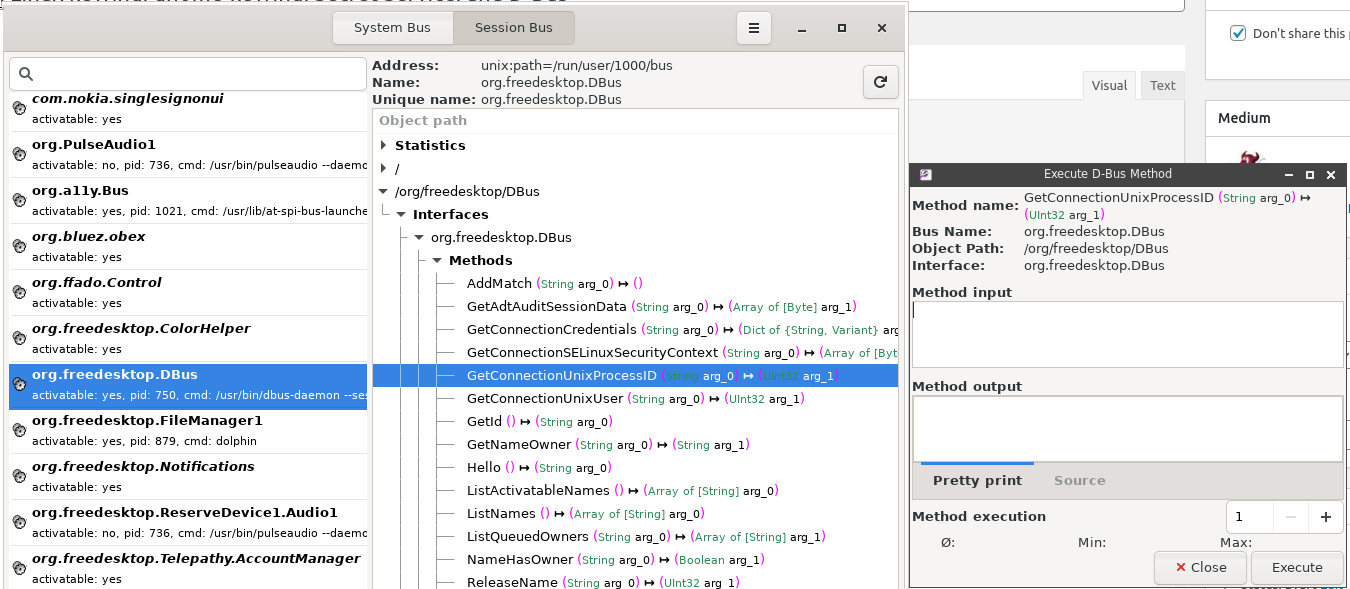



What Are Linux Keyring Gnome Keyring Secret Service D Bus
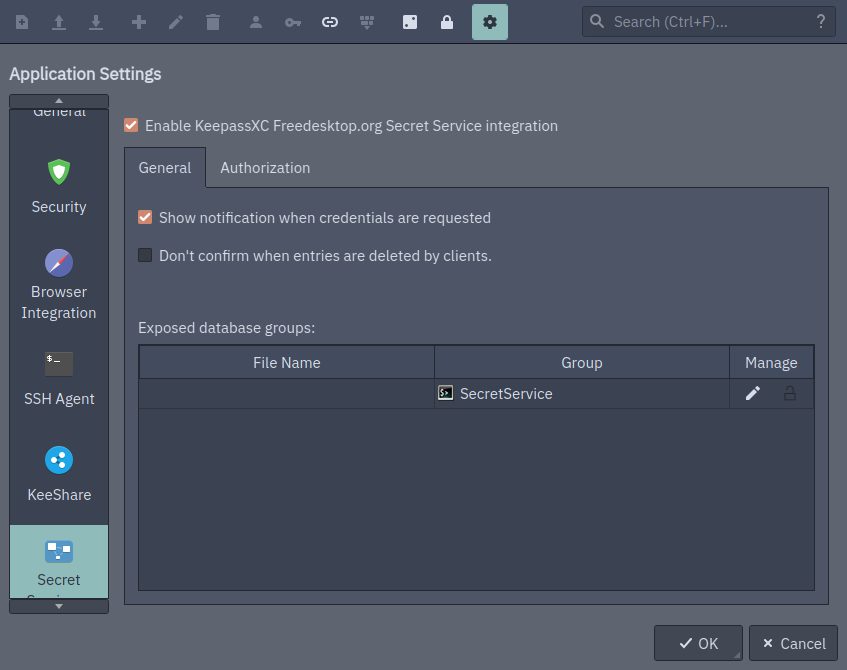



Keepassxc And Secret Service A Small Walk Through Alejandro S Blog
The Secrets service stores a secret along with a set of lookup attributes The attributes can be used to lookup and retrieve a secret at a later date The lookup attributes are not treated as secret material, and the service may choose to not encrypt attributes when storing them to diskThis package provides a command line tool using libsecret to access the freedesktoporg Secret Service API This can be used to store and retrieve passwords for desktop applications FreeDesktoporg Secret Service (replace Gnome keyring, etc) Additional encryption choices Twofish and ChaCha;
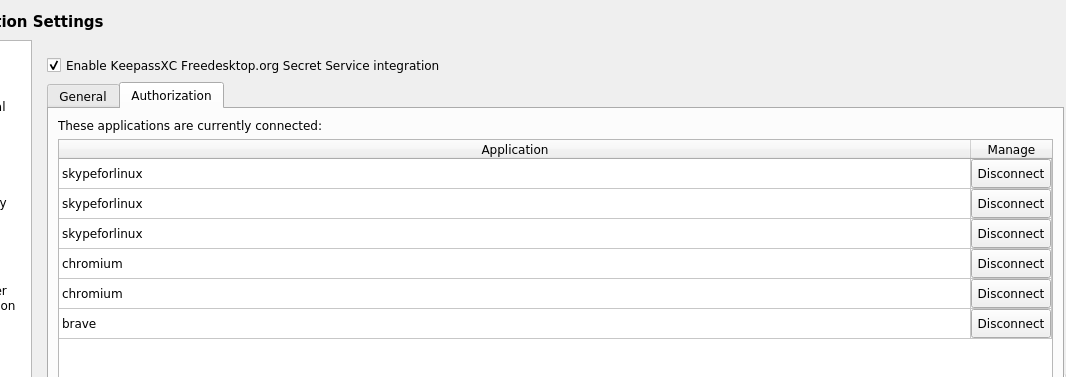



Keepass An Mfa Totp Codes A Browser S Passwords Ssh Keys Passwords Storage Configuration And Secret Service Integration By Arseny Zinchenko Setevoy Itnext




Secret Service Successes And Failures How The U S Secret Service Works Howstuffworks
None » Mapping to Collections and SubTypes Generally speaking, Boundary's CLI commands map to the collections they operate onDeactivateHome () deactivates (ie unmounts) the home directory of the specified user It is equivalent to the Deactivate () method on the orgfreedesktophome1Home interface documented below RegisterHome () registers a new home directory locally It receives the JSON user record as only argument (which typically excludes the "secret" section)When an application ask for the Secret Service API on DBus, if there is no provider, systemd will open the defaut provider as specified in that service file On Ubuntu this will default to gnomekeyring Enabling "KeePassXC freedesktoporg Secret Service integration" does



3
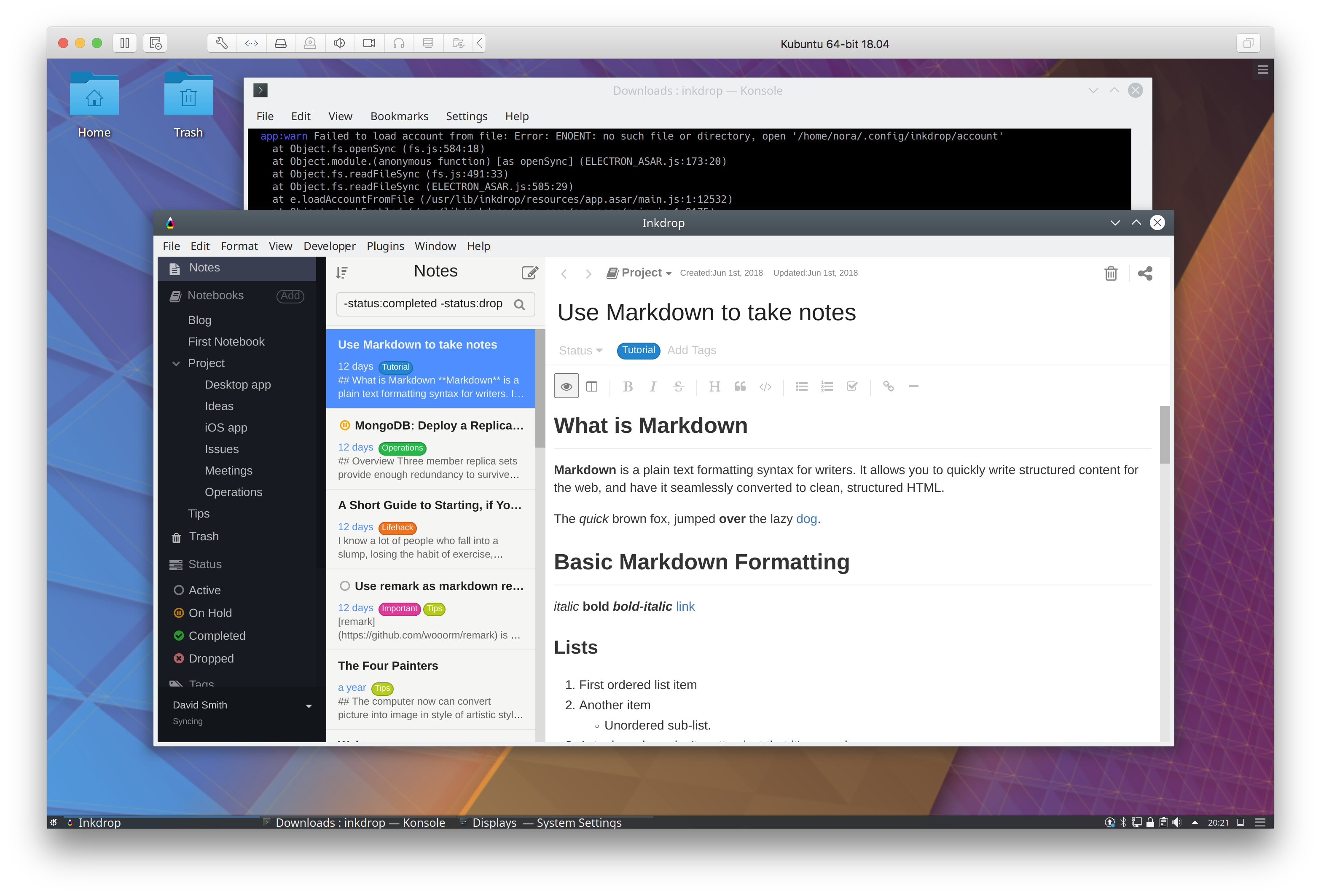



Failed To Log In To App Ubuntu 18 04 Support Inkdrop Forum
Secret Storage The Secrets API allows client applications to store secrets securely using a service running in the user's login session Drafting Process This API is currently being drafted in cooperation by the GNOME Keyring and the KDE Wallet developers Everyone's welcome to join the discussion and drafting process on our mailinglist Mailinglist The Secret Service API was jointly designed by the Gnome keyring and the KDE KWallet developers in order to have a standard way for desktop applications to access and manage stored passwords in both Gnome and KDE environments In this article I will show you how to generate java code for the Secret Service API and then use it in your Java application A Bit ofBy default, GCM Core comes unconfigured You can select which credential store to use by setting the GCM_CREDENTIAL_STORE environment variable, or the credentialcredentialStore Git configuration setting




Secret Service Lapel Pin Picture Images Photos A Large Number Of High Definition Images From Alibaba




United States Secret Service
In KeePassXC, go to Tools > Settings > SecretServiceIntegration and enable Enable KeepassXC Freedesktoporg Secret Service integration Select a database and/or group within the database that should be used for the integration (click on the pencil icon > SecretServicesIntegration > select a group) A designated group for the use with secret service is recommended, as otherSecret Service libary This library implements a rust interface to the Secret Service API which is implemented in Linux About Secret Service API http//standardsfreedesktoporg/secretservice/ Secret Service provides a secure place to store secrets Gnome keyring and KWallet implement the Secret Service API Basic UsagePlease be sure to answer the questionProvide details and share your research!



Github Swiesend Secret Service A Java Library For Storing Secrets Under Linux In The Gnome Keyring Over D Bus Like Libsecret But For Java



Remote Error From Secret Service Org Freedesktop Dbus Error Serviceunknown Issue 1 Flathub Com Bitwarden Desktop Github
This module provides a way for securely storing passwords and other secrets It uses DBusbased FreeDesktoporg Secret Service standard that is, for example, supported by GNOME Keyring (since version 230) and by KSecretsService It allows one to create new secret items, delete and search for passwords matching given attributes I used GnomeKeyring from Gtk3 with Python 27 but almost all methodes are deprecated 1 So I tried to use SecretSecretCollection 2 import gi girequire_version('Secret', '10') from girepository import Secret >> ValueError Namespace Secret not availableI can see Arch's PKGBUILD enables everything, not the case in Void's template which has conditionals




8 Secrets You Didn T Know About The Secret Service Howstuffworks




What Are Linux Keyring Gnome Keyring Secret Service D Bus
Rebuild Todo List gnomekeyring dependency replacement with orgfreedesktopsecrets Bruno Pagani Following keepassxc 250 release, we now have two implementations of orgfreedesktopsecrets FreeDesktoporg Secret Service (replace Gnome keyring, etc) Additional encryption choices Twofish and ChaCha;Keepassxc freedesktoporg secret service integration 2318




Gnome Fractal Wikipedia




Home United States Secret Service
Member=CreateItem array dict entry(string "orgfreedesktopSecretItemAttributes" variant array dict entry(string "service" string "secret") dict entry(string "username" string "username")) dict entry(string "orgfreedesktopSecretThe Secret Service API organizes secrets into collections, and holds each secret in an item Items consist of a label, attributes, and the secret The most common way to find an item is a search by attributes While it's possible to create new collections, most users will simply create items within the default collection Actions overview



Gnome Muellis Blog




Battlefield 4 Loadout P90 Secret Service Playlist Battlefield 4 Secret Service Battlefield



What Is Linux Keyring Gnome Keyring Secret Service And D Bus Linux




Secret Service Integration Not Working Another Secret Service Is Running Issue 3945 Keepassxreboot Keepassxc Github




Secret Service Counter Assault Team C A T With Fn Herstal P90 Special Forces Secret Service Tac Gear




United States Secret Service



Q Tbn And9gcsjbpooykafl1bqrfjw9ewhh1ikm Uv6shccvuyzkzfqwcca9ry Usqp Cau




How To Implement Devsecops On Aws For Startups



Shooting Holes In Theory That A Secret Service Agent Killed President Kennedy
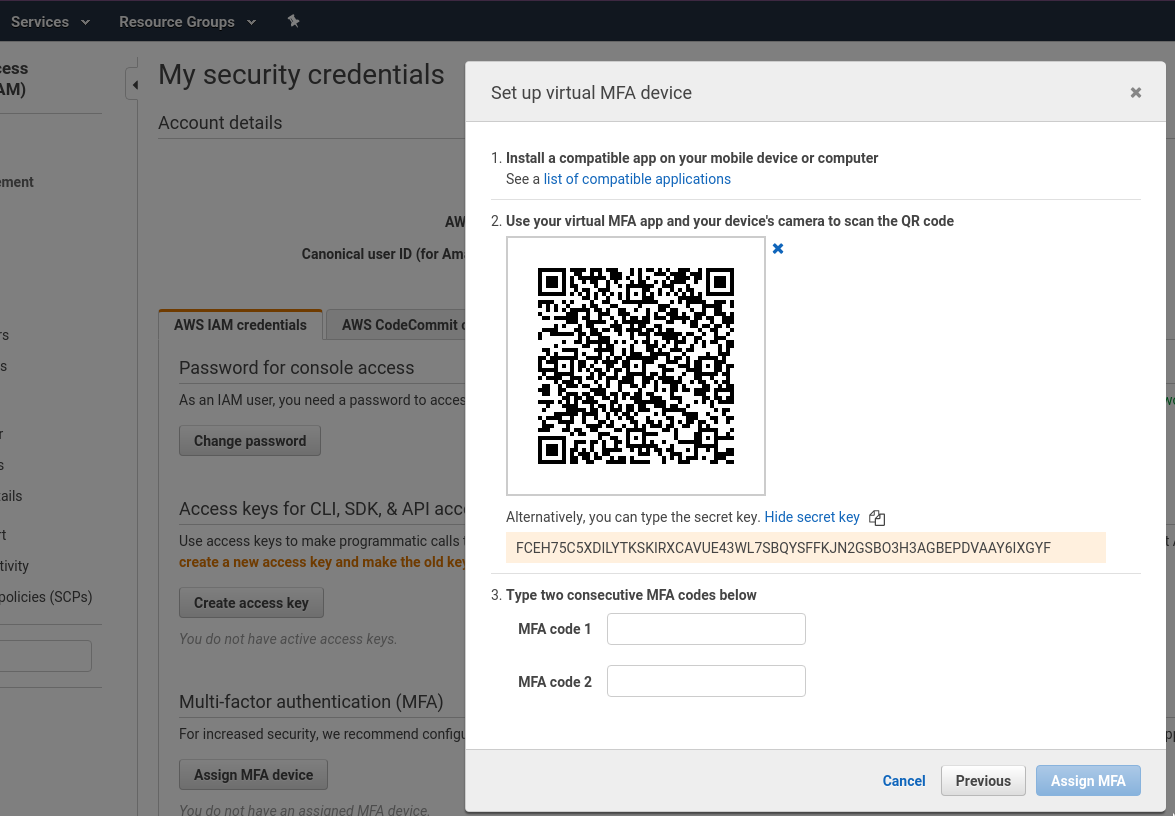



Keepass An Mfa Totp Codes A Browser S Passwords Ssh Keys Passwords Storage Configuration And Secret Service Integration By Arseny Zinchenko Setevoy Itnext




A Timeline Of The Secret Service S Embarrassments The Atlantic
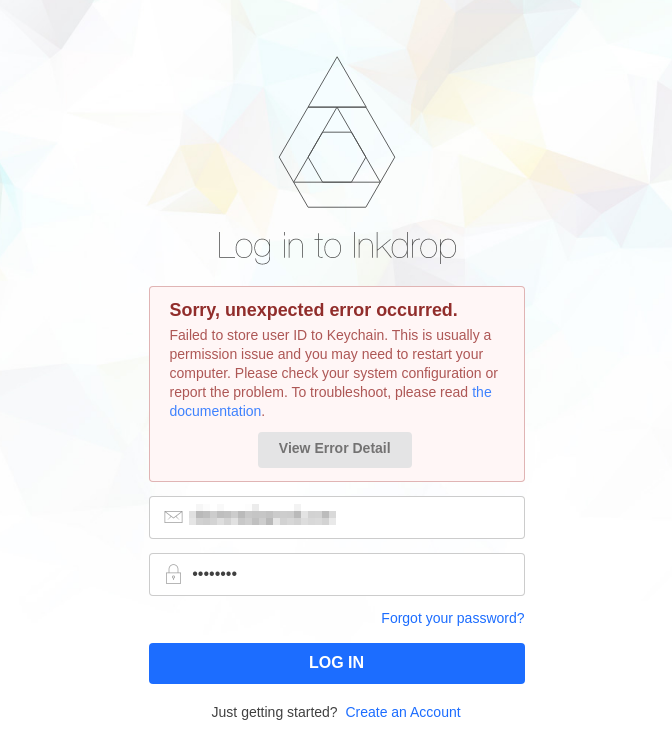



Failed To Log In To App Ubuntu 18 04 Support Inkdrop Forum




United States Secret Service Wikipedia




8 Secrets You Didn T Know About The Secret Service Howstuffworks




Command Not Found Com Secret Tool




Need Help With Encryption Error Kdewallet Unusable Public Key Newbie Corner Arch Linux Forums
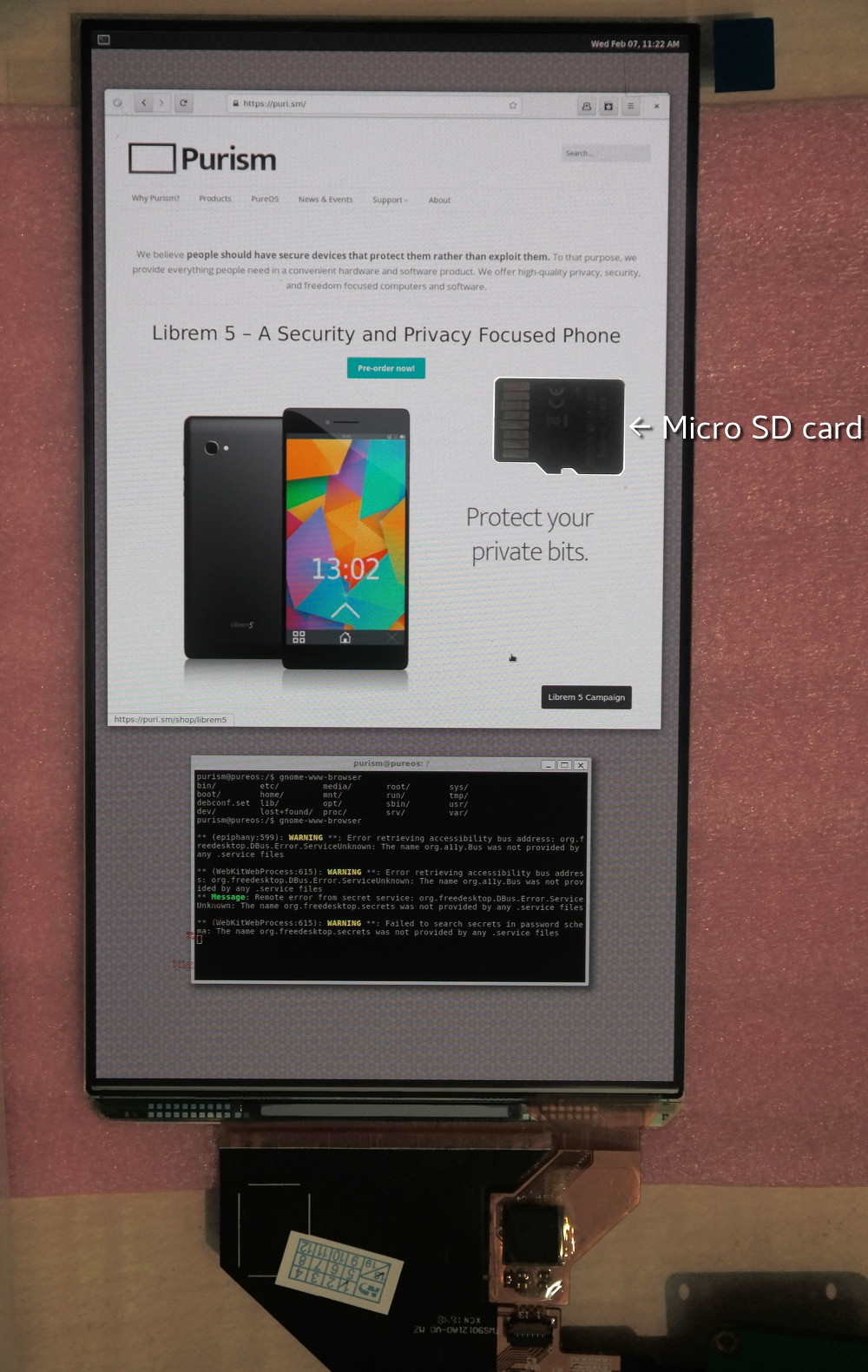



Librem 5 General Development Report February 13 18 Purism




United States Secret Service Wikipedia




Secret Service Fast Facts Cnn



Download Wallpaper On Her Majesty S Secret Service On Her Majesty S Secret Service Film Movies Free Desktop Wallpaper In The Resolution 1024x768 Picture



Bustle 0 2 4 Released Will Thompson S Gnome Ish Blog




Planet Gstreamer




Krunner Keepassxc Kde Store
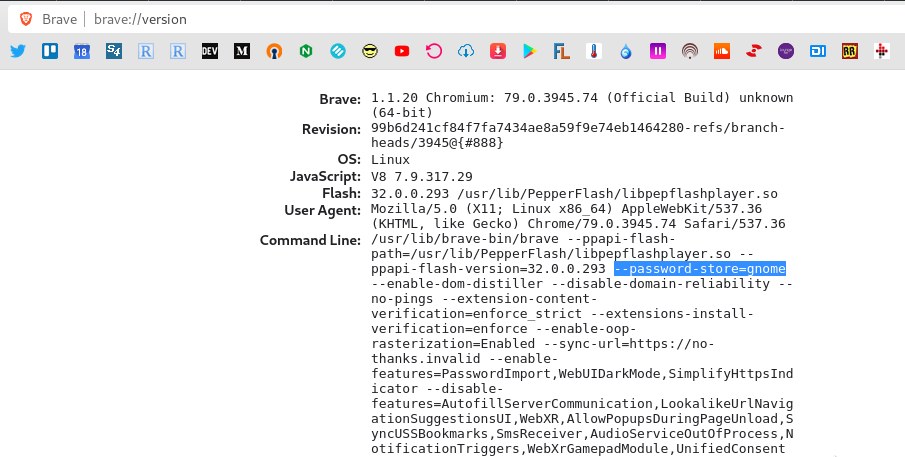



Keepass An Mfa Totp Codes A Browser S Passwords Ssh Keys Passwords Storage Configuration And Secret Service Integration By Arseny Zinchenko Setevoy Itnext




Opensuse Software




What Are Linux Keyring Gnome Keyring Secret Service D Bus
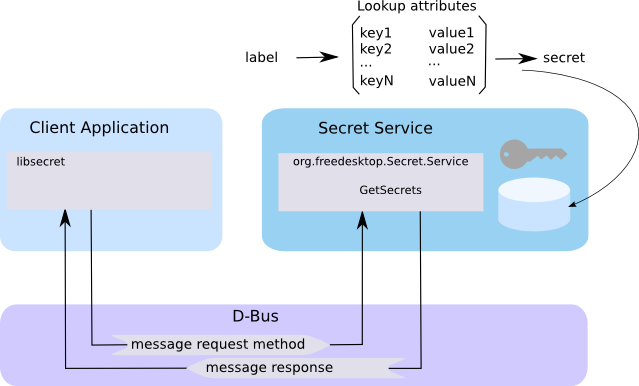



Using The Gnome And Kde Secret Service Api In Ada



Secret Service Library To Interface With Secret Service Api




The Name Org Freedesktop Secrets Was Not Provided By Any Service Files Issue 681 Foundry376 Mailspring Github
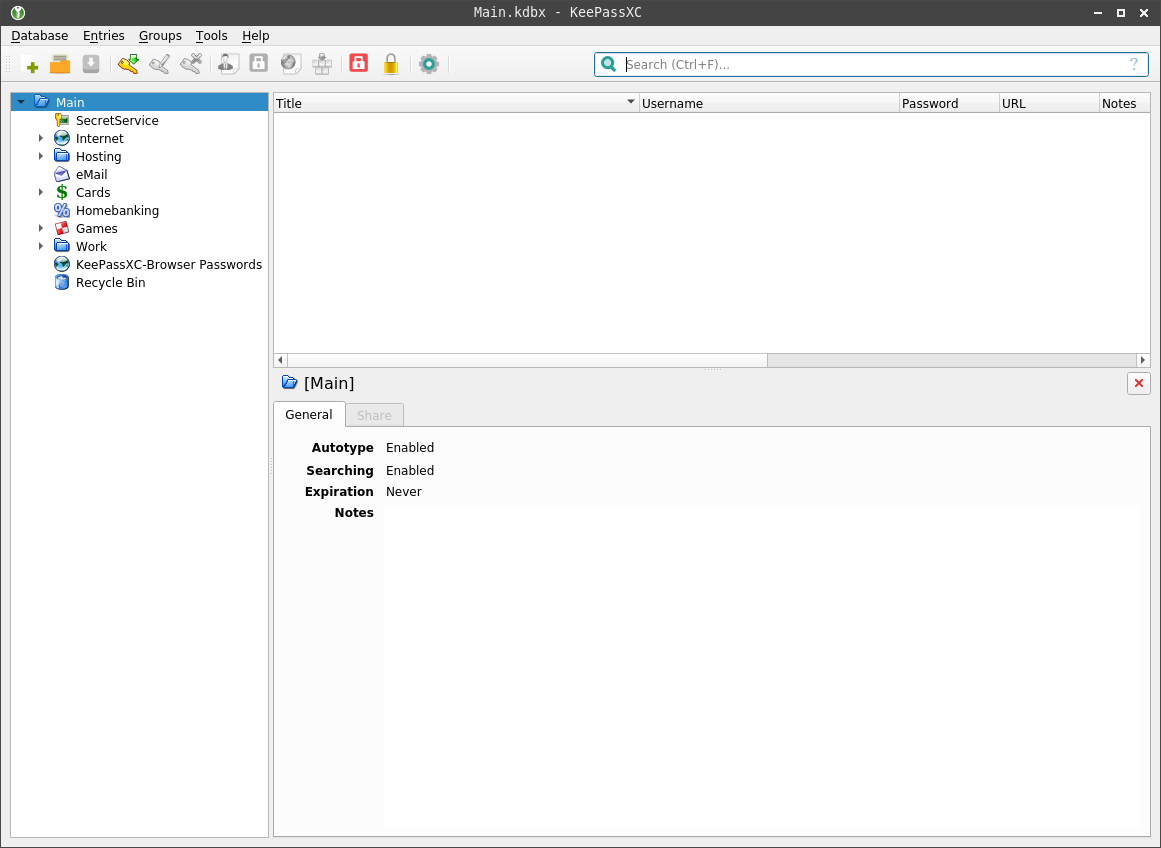



Keepass An Mfa Totp Codes A Browser S Passwords Ssh Keys Passwords Storage Configuration And Secret Service Integration By Arseny Zinchenko Setevoy Itnext



3




U S Secret Service History Duties Facts Britannica




Problem With Libsecret Org Freedesktop Secrets Resolved Mailspring Community



Register As Systemd Default Secret Service Provider Issue 6274 Keepassxreboot Keepassxc Github
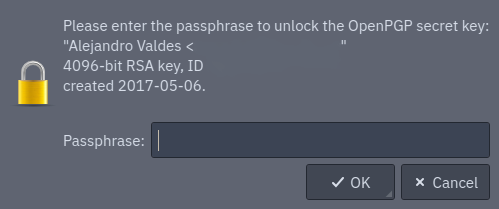



Keepassxc And Secret Service A Small Walk Through Alejandro S Blog
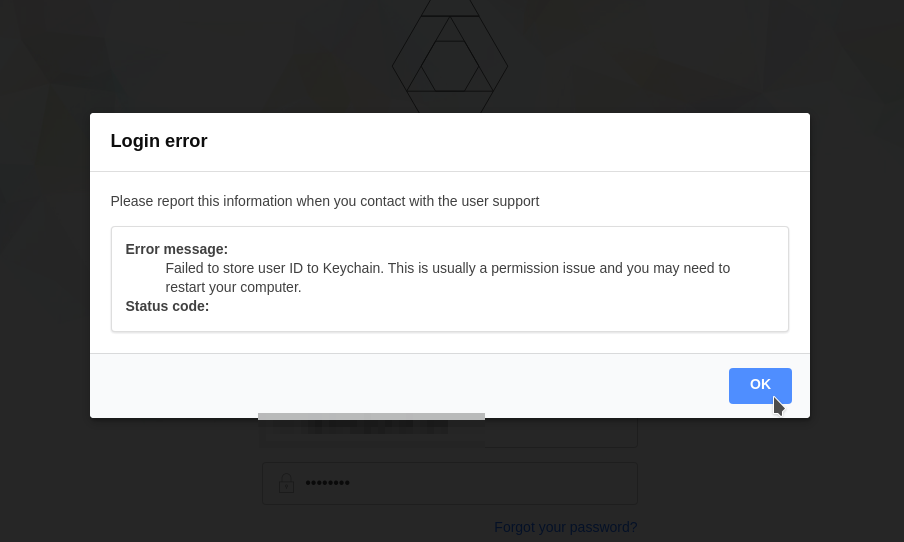



Failed To Log In To App Ubuntu 18 04 Support Inkdrop Forum




Krunner Keepassxc Kde Store
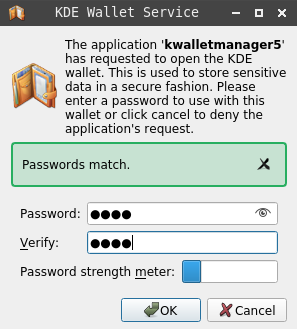



What Is Linux Keyring Gnome Keyring Secret Service And D Bus Laptrinhx




United States Secret Service




8 Secrets You Didn T Know About The Secret Service Howstuffworks




The Untold Truth Of The Secret Service
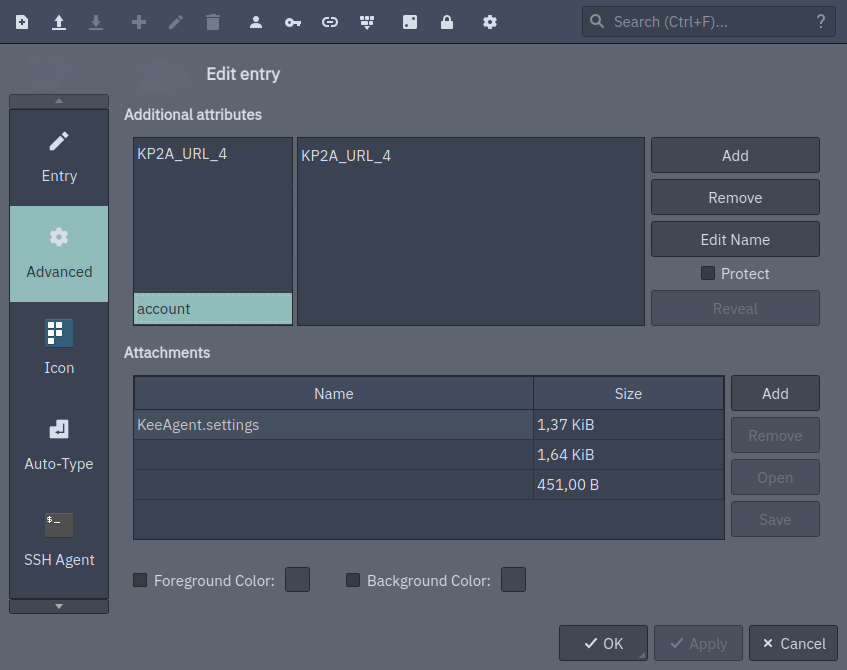



Keepassxc And Secret Service A Small Walk Through Alejandro S Blog




Home United States Secret Service




United States Secret Service Wikipedia




The Keepassxc Team Is Creating A Secure Open Source Password Manager Patreon
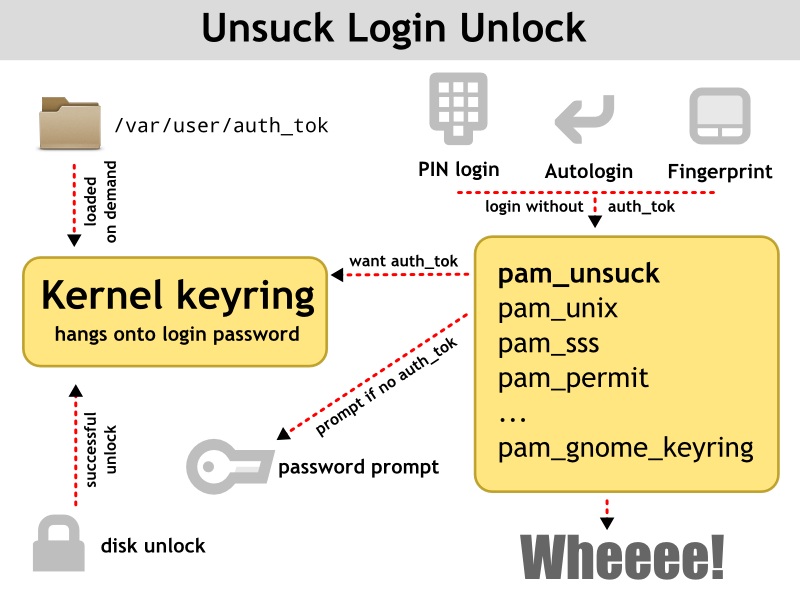



Login Unlock




United States Secret Service
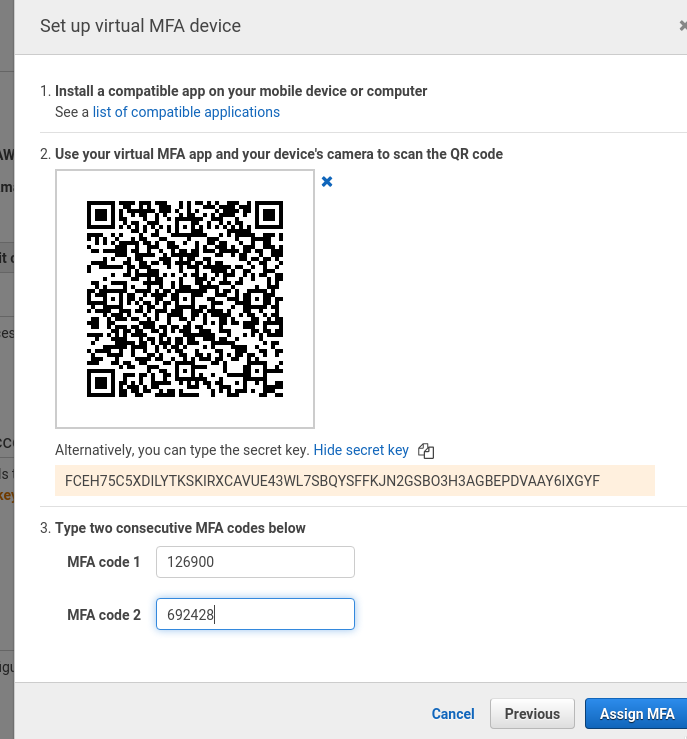



Keepass An Mfa Totp Codes A Browser S Passwords Ssh Keys Passwords Storage Configuration And Secret Service Integration By Arseny Zinchenko Setevoy Itnext




United States Secret Service



2




Problem With Libsecret Org Freedesktop Secrets Resolved Mailspring Community




Welcome To Rolexmagazine Com Home Of Jake S Rolex World Magazine Optimized For Ipad And Iphone Chapter 5 George Lazenby On Her Majesty S Secret Service



Kubuntu Forums
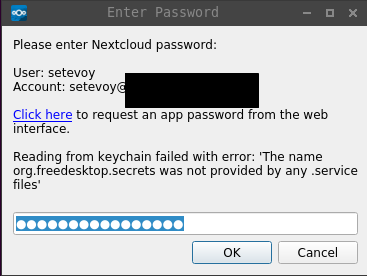



Linux The The Name Org Freedesktop Secrets Was Not Provided By Any Service Files Error
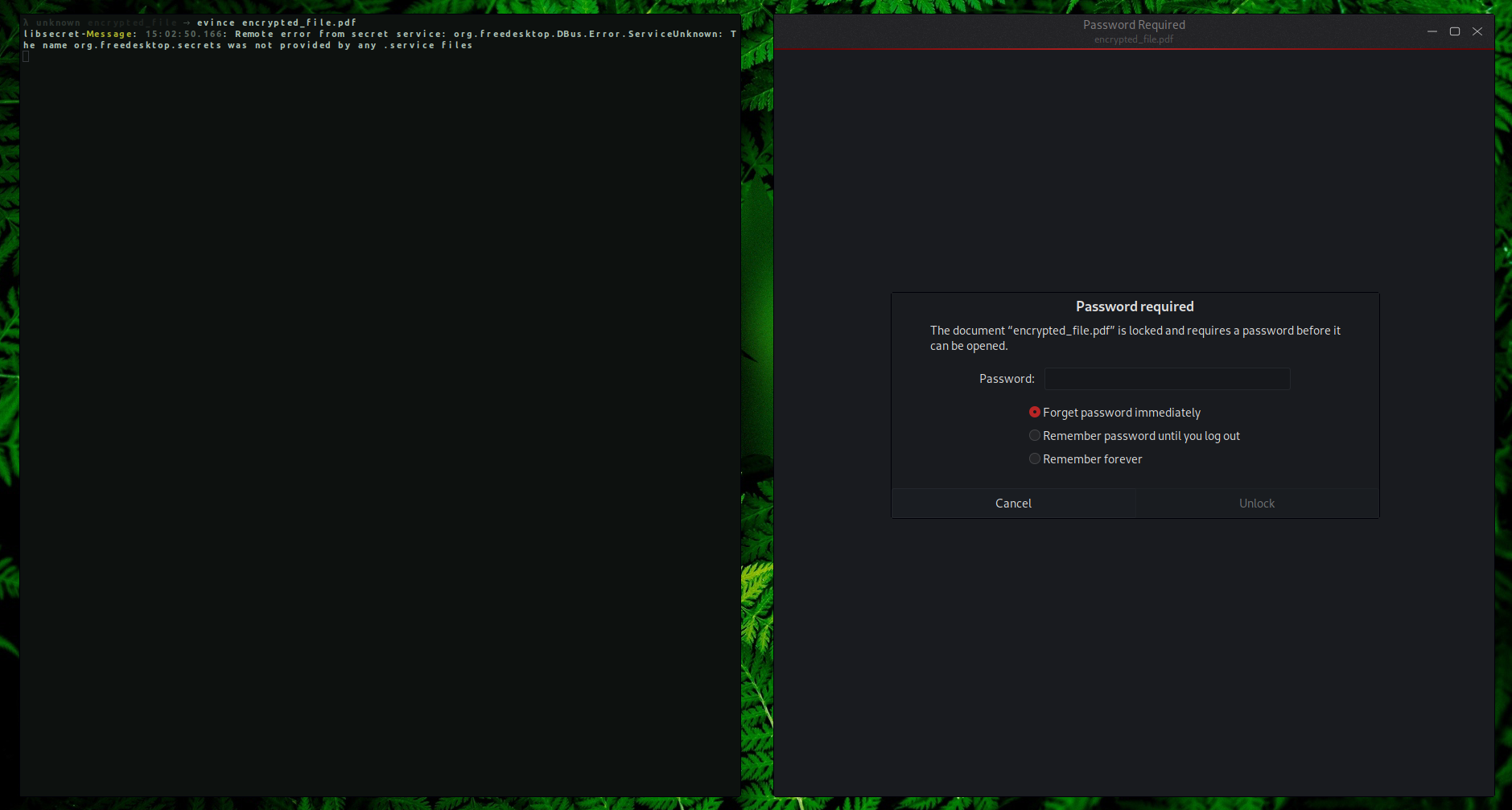



Ctf7e4 Steganography Challenges



Download Wallpaper I Dog And The Secret Service Girl Fox Free Desktop Wallpaper In The Resolution 1680x1050 Picture
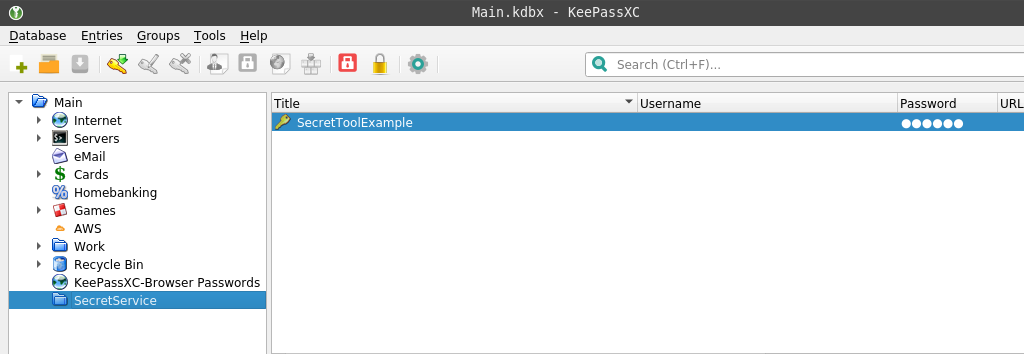



What Is Linux Keyring Gnome Keyring Secret Service And D Bus Laptrinhx




United States Secret Service




Freedesktop Org Specifications




Install Keepassxc Password Manager On Linux Ubuntu



Secret Service Gets No Such Interface Org Freedesktop Dbus Properties Aws Vault




Remote Error From Secret Service And Closing Tabs Ides Support Intellij Platform Jetbrains




Gnome Live Coding Gnome 40 En Youtube




Keepassxc Not Providing Freedesktop Secrets After Lock Unlock Of Database Issue 4004 Keepassxreboot Keepassxc Github




3 Approaches To Secrets Management For Flatpak Applications Opensource Com



3
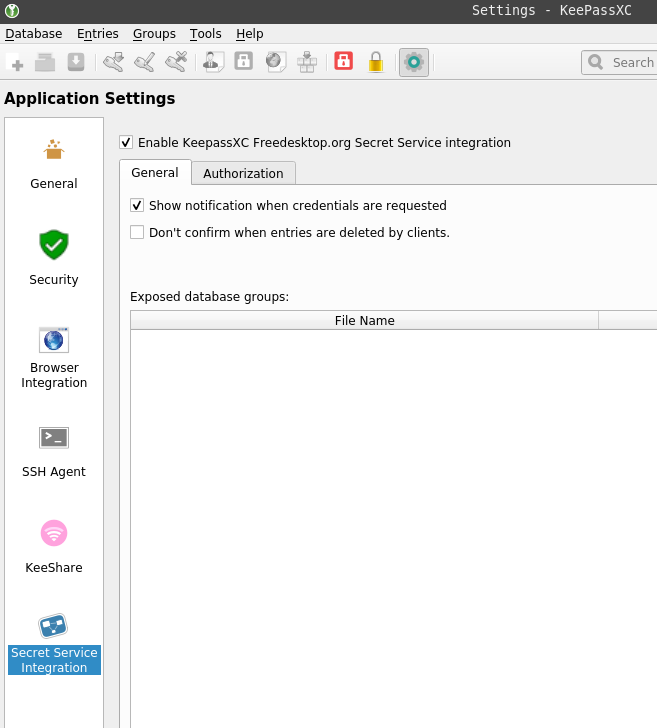



What Are Linux Keyring Gnome Keyring Secret Service D Bus




Failure To Start The Ibma Software Huawei Enterprise Support Community Enterprise Failure Software
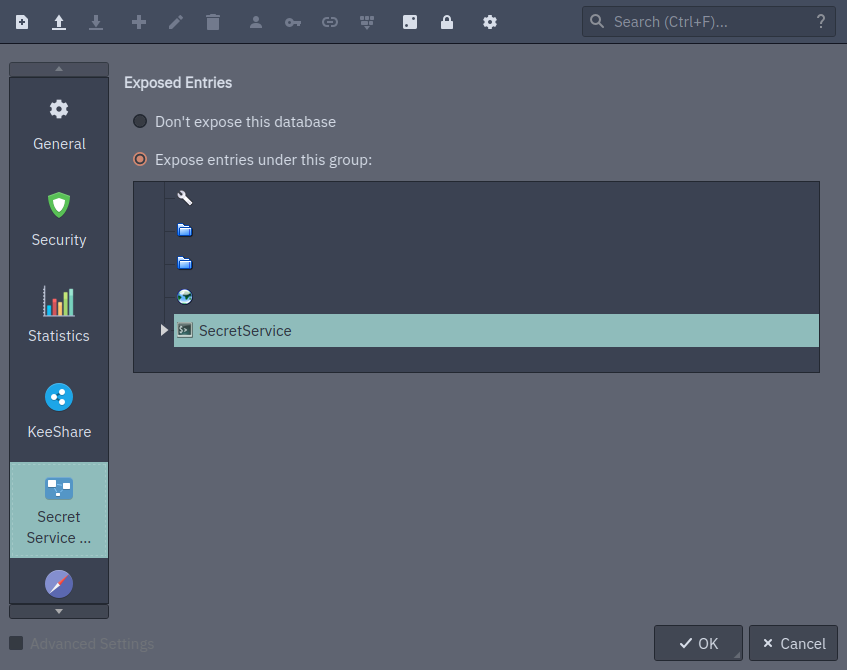



Keepassxc And Secret Service A Small Walk Through Alejandro S Blog




Kingsman The Secret Service Wallpaper Posted By Ethan Walker




United States Secret Service Wikipedia
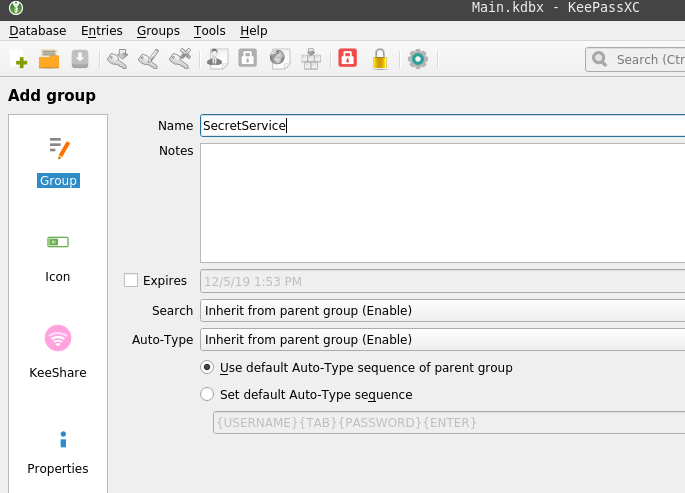



What Are Linux Keyring Gnome Keyring Secret Service D Bus



Secret Service Library To Interface With Secret Service Api




Dash To Dock Reveal On Win Key Desktop Ubuntu Community Hub




19x1080 Free Desktop Kingsman The Secret Service Cool Wallpapers For Me




U S Secret Service History Duties Facts Britannica



0 件のコメント:
コメントを投稿